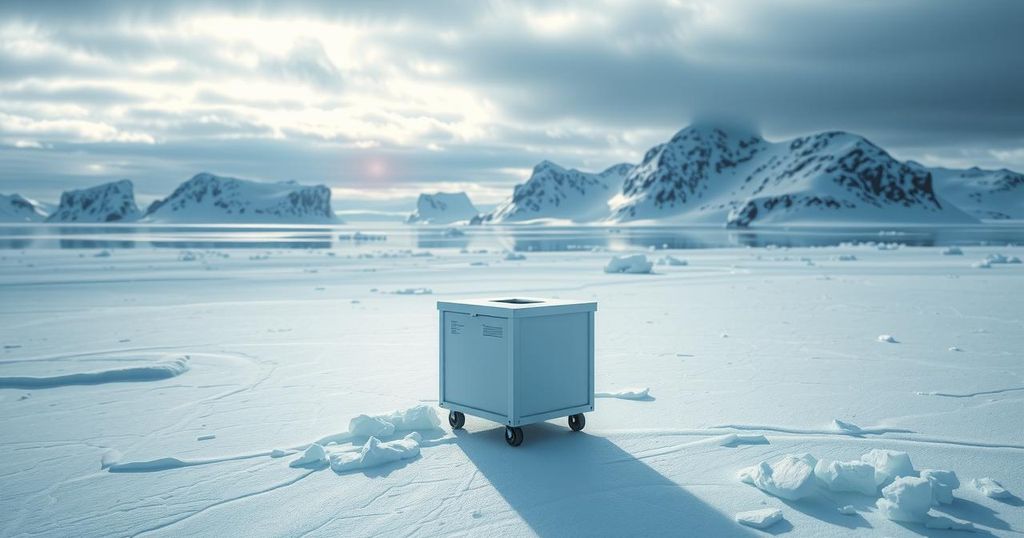Greenland Elections: Navigating Autonomy Amid External Pressures from Trump

Greenland’s parliamentary elections are closely watched as U.S. President Trump expresses interest in the island, which is rich in rare earth minerals. The population, primarily Indigenous Inuit, is focused on asserting independence, with many fearing external influences on their future. The voting process is complicated by Greenland’s geography, and environmental concerns are crucial amid discussions of economic development.
Greenland is conducting early parliamentary elections amid growing interest from U.S. President Donald Trump, who wishes to control the strategically located island rich in rare earth minerals. Although Trump’s intentions are not officially on the ballot, they significantly influence public sentiment and discussions surrounding Greenland’s future. This self-governing region of Denmark is home to 56,000 residents, primarily of Indigenous Inuit descent, who have been striving for greater independence since 2009.
In light of Trump’s interest, many Greenlanders feel apprehensive about their autonomy. Pipaluk Lynge, a member of the ruling Inuit Ataqatigiit party, expressed concerns and indicated a desire to strengthen connections with Europe as a means to secure their sovereignty. Public opinion polls suggest a strong preference for independence among Greenlanders, despite generally good relations with Americans, particularly at the Pituffik Space Base, where U.S. military personnel have been stationed since 1951.
Even those who support Trump advocate for Greenland’s autonomy. Gerth Josefsen, a fisherman from Nuuk, exemplifies this perspective, emphasizing Greenland’s openness for business but resisting any notion of being sold. Doris Jensen from the Siumut party noted that Trump’s international attention has accelerated the push for independence, urging a quicker path to self-determination.
The political atmosphere has shifted dramatically with heightened global media attention. Following a recent televised debate in Nuuk, the unusually high presence of journalists served as a reminder of the significant changes occurring in Greenland. Local residents acknowledge that politics operates differently here, with a preference for calm and respectful debate around issues such as workforce development and infrastructural advancements, such as a new airport accommodating larger aircraft.
On election day, logistical challenges will arise due to Greenland’s vast geography, which lacks roadways. Polling places, like the only station in Nuuk’s sports hall, expect a community atmosphere with campaign tents and refreshments offered to voters. Initial election results will be reported soon after polls close, but certified results may take weeks to finalize as ballots are transported from remote areas.
Despite the excitement of the election, environmental concerns loom large. Greenland’s government imposes stringent regulations on mineral extraction due to its fragile ecosystem and predominantly ice-covered landscape. The potential for rare earth minerals exists, yet feasibility remains uncertain. Recent extreme weather conditions, including hurricane-strength winds, prompted local residents to seek refuge indoors amidst feedback about increasing climate-related challenges.
The ongoing elections in Greenland highlight critical issues surrounding autonomy amid external interest, particularly from the U.S. Trump’s focus on Greenland as a strategic location underscores the urgency for Greenlanders to assert their independence. Local sentiments reveal a desire to protect sovereignty while navigating economic opportunities and environmental challenges. The elections will potentially shape Greenland’s future as it seeks to balance these competing priorities.
Original Source: www.2news.com







